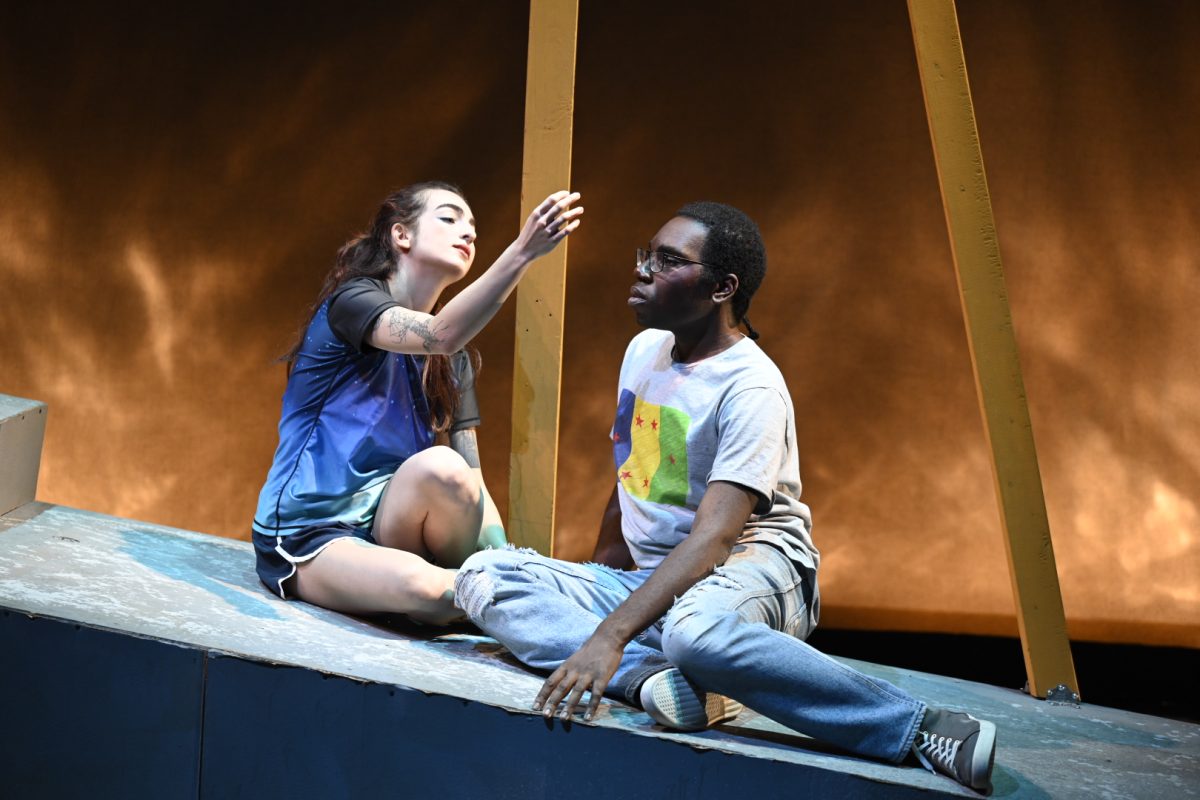Surrounded by mountains of props in the Weitz’s black box theater, a cast of students meet weekly inside the spike-tape blueprint of a future speakeasy-inspired set to walk in the shoes of 400-year old characters.
The play’s director, Andrew Carlson ’99, and Carleton’s Program Director of Medieval and Renaissance Studies, Pierre Hecker, paint a picture of the upcoming production of “Much Ado About Nothing” which aims to bring joy to the campus — boasting a professional jazz band, plenty of Lindy Hop and Charleston dancing and a performance rooted in the humor and tenderness of the text.
For those unfamiliar with the play, “Much Ado About Nothing” centers around romance and an enduring silliness. The humor and strife of its protagonists, who are tricked into thinking that that an unexpected character is either madly in love with them or disloyal has earned the play a spot among Shakespeare’s most popular comedies. With plenty of amusing romance between hot-headed leads Beatrice and Benedick, “Much Ado” also boasts an enchanting enemies-to-lovers arc along with a “challenging darker side.”
Director Andrew Carlson spoke about the process of adaptation which he, his cast and crew have been exploring. “We wanted people to walk into the space and be transported into another world. So the question is, what world did we want to transport them to?”
Choosing a setting to carry the text to a Carleton viewership has involved the selection of a time period that knits the context of the play with the viewers’ experiences. This production sets itself in the ‘20s, intersecting with the 16th-century story in a cultural context that mirrors our own. Carlson says, “I started getting excited [about] the 1920s as an era for several reasons: for one, the play begins with soldiers returning from war, and, you know, there’s the end of WWI leading into a new decade.”
To Carlson, emerging from the shared endurance of COVID-19 lockdowns on campus “feels similar to the play’s movements. We’ve been in a place of non-connection and restriction [that yields] to release.” This production maps the story on to our current experiences shaking from the restriction of COVID-19, as well as the transition of winter to spring — a “great thawing that’s allowing for a different kind of intimacy, love and connection,” Carlson said.
Hecker describes the choice of this play as bringing to life “a celebratory moment in the theater.”
“I can’t tell you how thrilled I am to participate in it, even at a distance,” Hecker said, describing the English project course that he co-teaches in conjunction with the production. “We get to do this thing in the class where the typical English department mode of sitting in the classroom with texts in our hands, where all possibilities are on the table … has to turn into choices and production that are serving the vision of the director. There’s something just really gratifying and fascinating about that.”
Considering the additional challenges of adaptation, Hecker spoke on the opportunities the cast has had to grapple with in adapting a text full of Renaissance-era puns, as well as jokes and emotional beats rooted in Shakespeare’s cultural context, to Carleton’s black box. “You can’t act the footnotes, and sometimes you know … these secrets about the play, about the hidden meanings, about its puns, especially if you’re a Carleton scholar.” The show’s Benedick and Beatrice, “Colin [Preves ’24] and Skye [Sparks ’25] will know, and that scholarly knowledge will affect their performances and their choices.”
This thoughtfulness in shaping Shakespeare’s timeless spirit to a particular time and place was clear in the rehearsal I had the chance to attend. Actors split their time between close readings of the text and lively Lindy Hop practices, connecting the Renaissance to the ’20s and the ’20s to Carleton College.
Andrew remarked that there’s “something really exciting about live music and dance mixed with a play that people have been doing for 400 years, and yet it will be done here in a way that is unique with Carleton students in a way that’s never been done before.”
“Much Ado About Nothing” will be performed Thursday, May 4 — Sunday, May 7 in the Weitz’s black box theater. The production will run a 7:30 p.m. performance each evening, plus an additional 2 p.m. matinée on Saturday, May 6.












